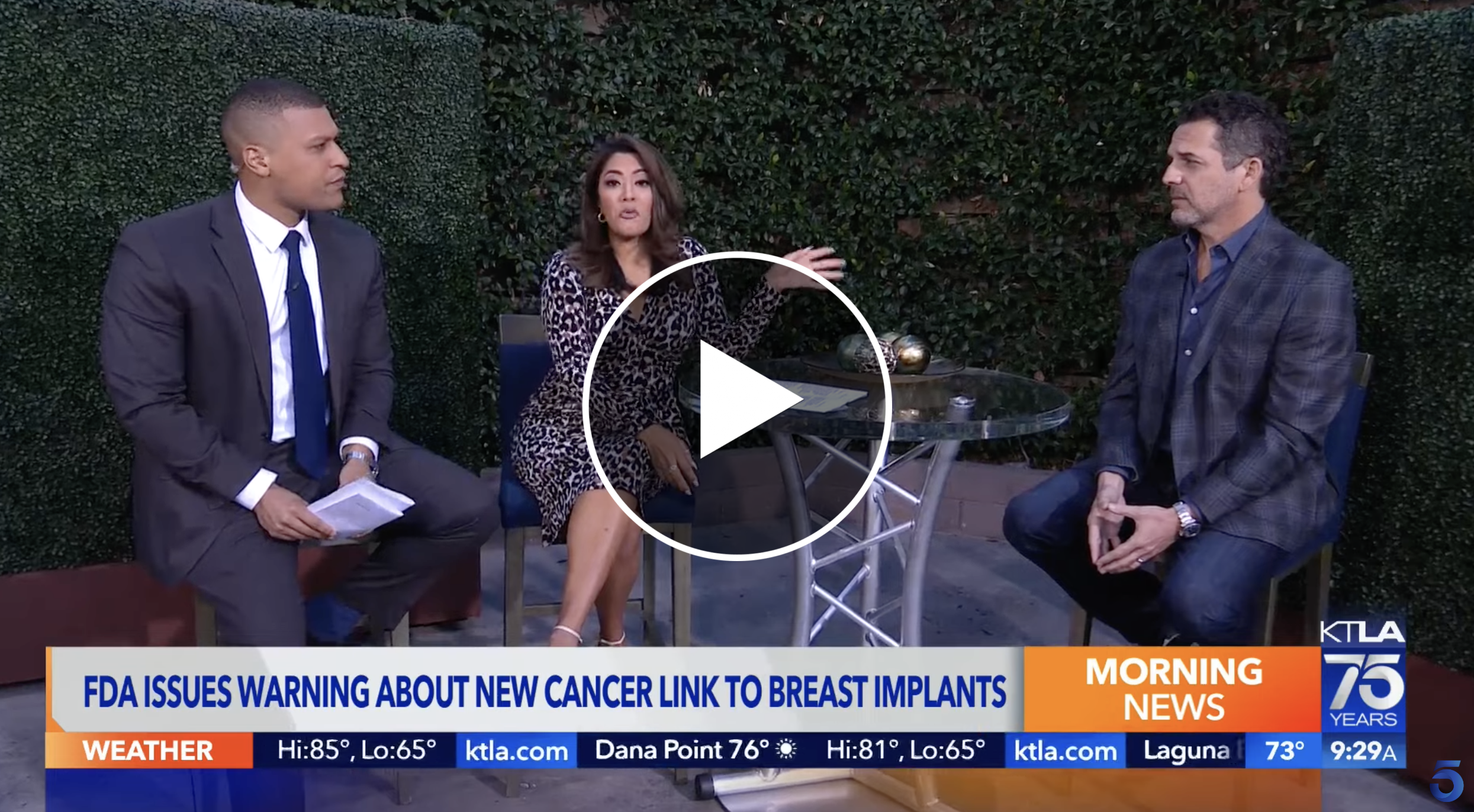Dr. Kevin Brenner’s philosophy as a plastic surgeon is based on a deep dedication to patient safety. As part of this mission to increase plastic surgery safety across the board, our practice would like to inform you of a recent FDA safety communication regarding breast implants.
Reports of Squamous Cell Carcinoma and Various Lymphomas in Capsule Around Implants
The FDA informs the public about reports of cancers, including squamous cell carcinoma (SCC) and various lymphomas, in the scar tissue (capsule) that forms around breast implants.
It is important to note that the various lymphomas reported are not the same as the lymphomas described as Breast Implant-Associated Anaplastic Large Cell Lymphoma (BIA-ALCL) in previous FDA Communications.
Breast implant information reports SCC and various lymphomas in the capsule around the breast implants for:
- Textured implants
- Smooth breast implants
- Saline and silicone implants
In some cases, implant recipients were diagnosed years after having breast implants. Some of the reported signs and symptoms included:
- Swelling
- Pain
- Lumps
- Skin changes
How the FDA was made aware
Following a preliminary review of published literature as part of ongoing monitoring of the safety of breast implants, the FDA is aware of less than twenty cases of SCC and less than thirty cases of various lymphomas in the capsule around the breast implant.
As of September 1, 2022, the FDA has received ten medical device reports about SCC related to breast implants and 12 medical device reports about various lymphomas associated with breast implants. The FDA notes that while they recognize the limitations of such data, they acknowledge that reports do not necessarily represent unique cases.
This is because reports submitted are just one source the FDA uses to monitor the safety of medical devices. Other sources include:
- Mandated postmarket studies
- Published literature
- Real-world data from registries and claims databases
The FDA continues to gather and review all available data from these sources to evaluate the occurrence of cancers in the capsule around breast implants.
How the FDA is responding
The FDA believes that occurrences of SCC or various lymphomas in the capsule around the breast implant may be rare. However, health care providers and people who have or are considering breast implants should be aware that cases have been reported to the FDA and in the literature.
Currently, the following factors remain unknown:
- The incidence rate for SCC
- Risk factors for SCC in the capsule around the implant
- Risk factors for various lymphomas in the capsule around the breast implants
As this is an emerging issue, the FDA notes that their understanding is evolving. For this reason, they are asking health care providers and people with breast implants to report cases of SCC, lymphomas, or any other cancers around the breast implant.
Recommendations if you have breast implants
There’s no need to change your routine medical care; simply be aware that cases of SCC and various lymphomas in the capsule around the breast implant have been reported. Additionally, you should monitor your breast implants for as long as you have them.
If you do not have symptoms, the FDA does not recommend the removal of breast implants because of this safety communication.
If you notice any abnormal changes in your breasts or implants, such as the symptoms that were previously listed, promptly contact Dr. Brenner. File any instances of complications with breast implants through MedWatch, the FDA Safety Information and Adverse Event Reporting program. Your report and other sources can provide information necessary for improving patient safety.
Currently, these recommendations do not change or affect the recommendations previously provided by the FDA on BIA-ALCL.


